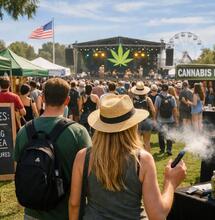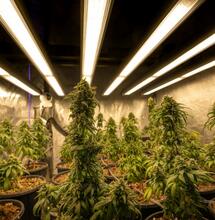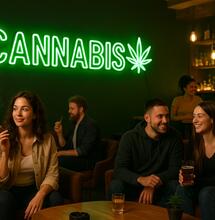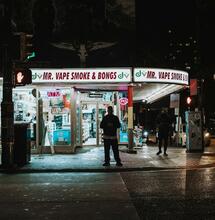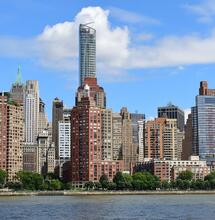New York Unlicensed Smoke Shops Not Paying Fines
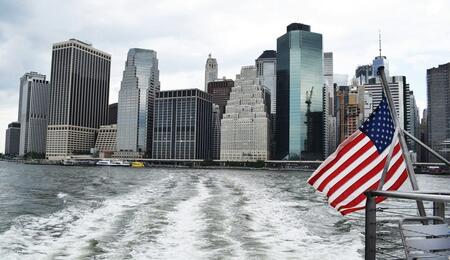
New York authorities have issued fines for hundreds of unlicensed cannabis retailers that operate around the state. The sum of money that needs to be collected from those fines is a whopping $25 million. However, the agencies have collected almost nothing. The number of unlawful vendors is so huge that law enforcement finds it difficult to implement cannabis laws. In addition, people have the right to appeal the fines.
Establishing a legal weed market apparently comes in with a unique set of challenges. For New York, it’s the proliferation of unlicensed cannabis retailers that mushroomed left, right and center as the state delayed the start of issuing dispensary licenses after it introduced legalization.
Law enforcement agencies have tried to subdue the illicit retail chain by conducting raids and writing fines. Still, millions in fines remain unpaid by New York’s unlicensed cannabis retailers.
Law Enforcement Weak in Implementing Cannabis Law
Since last year, New York’s Office of Cannabis Management (OCM) and the Department of Taxation and Finance have issued hundreds of fines to unlicensed cannabis retailers. Should these fines be paid, the state coffers would be heavier by $25 million.
However, the agencies have only managed to cash in a very small amount of the total sum, or just $22,500, according to a recent report from The City news outlet.
Fines are levied and collected by the two agencies separately. They may penalize the individual who runs the weed shop or the business itself when it’s difficult to find out who the owner is.
The amount of $22,500 has been charged by the OCM, while the Department of Taxation has collected none in fines so far, according to The City.
Both agencies have received greater authority during the last year to enforce New York’s cannabis law, which was enacted in 2021. Both the OCM and the Department of Taxation began raids on weed shops that sold products without a license somewhere in the summer.
By October, the state cannabis agency paused enforcement hearings, which are part of the legal process that follows a raid. A rumor went that the reason for that was the lack of resources, or a poor number of staff hired to deal with the whole operation.
But that would simply complicate the matter and lengthen the time until the agencies are able to collect the money from the fines.
The OCM in the meantime has continued with more raids, while some shops and their managers have received separate letters from the tax department warning them they owe more than $150,000 in fines, reported The City.
A spokesperson for OCM told The City that the agency has seized tens of millions of dollars in illicit products as part of the agency’s enforcement actions.
“Currently, the State is prioritizing shutting down illegal shops and seizing unlawful products,” the spokesperson said. “While we recognize entities being fined have a right to due process, we are committed to working within the confines of the law to collect the fines once the legal process is complete.”
Vendors who’ve been caught selling pot products without a license have the right to appeal a fine, which could additionally explain why nobody is paying fines yet.
New York’s Unlicensed Weed Shops Number is Unknown
Perhaps there’s no greater pointer of how big New York’s illegal market is than the fact that there’s no proper count of the number of unlicensed cannabis retailers; there’s simply the estimation, and it’s in the thousands.
A count from 54th Street to 208th Street on the West Side of Manhattan back in October 2022, found that the area was dotted with 64 illegal cannabis vendors, according to a report from City and State NY.
“It’s a huge number on the Upper West Side, and the part that’s most disturbing is that many of them are near high schools,” notes the author of the report.
The OCM does not have the capacity to conduct raids on all of those locations. Its staff is very limited, and a single raid could easily take half the working day as it involves going item by item. The illegal weed usually comes from California, and perhaps also Oklahoma.
The Sheriff’s Department is also engaged on the field. But they are more oriented toward undercover inspections of smoke shops suspected of selling weed to minors. These checks have started after an increased number of reports about students who vape on school premises.
Subduing the illegal weed trade on the streets of New York is also among the priorities of governor Kathy Hochul. The lack of enforcement has shown how daunting the task can be, therefore the governor announced a series of actions to expand the enforcement powers of the state in combating unlicensed cannabis retailers.
“Last year, we passed new laws to padlock and shut down illegal operators,” she said in her state address at the start of this year, “but we know there’s more to be done and we need more tools to do it.
“We’re going to continue working with local leaders, including in New York City, to shut down illegal cannabis stores once and for all,” she said.
Granting more enforcement powers alone would not solve the problem that New Yorkers currently face, however. The number of legal cannabis retailers must go up, too.
There’s the general impression that the licensing process for new operators has been sluggish in the Empire State. Two years into legalization, New York still has less than 40 legal cannabis shops. A number that might look insignificant compared with all the illicit spots where one can purchase pot.
On the bright side, New York’s legal market looks committed to achieving equity. The state currently has eight majority Black owned shops, five Hispanic owned, and nine are women owned. In New York, over 20% of all recreational dispensaries are majority Black owned.
Also read on Soft Secrets:
- Will New York Become California All Over Again?




